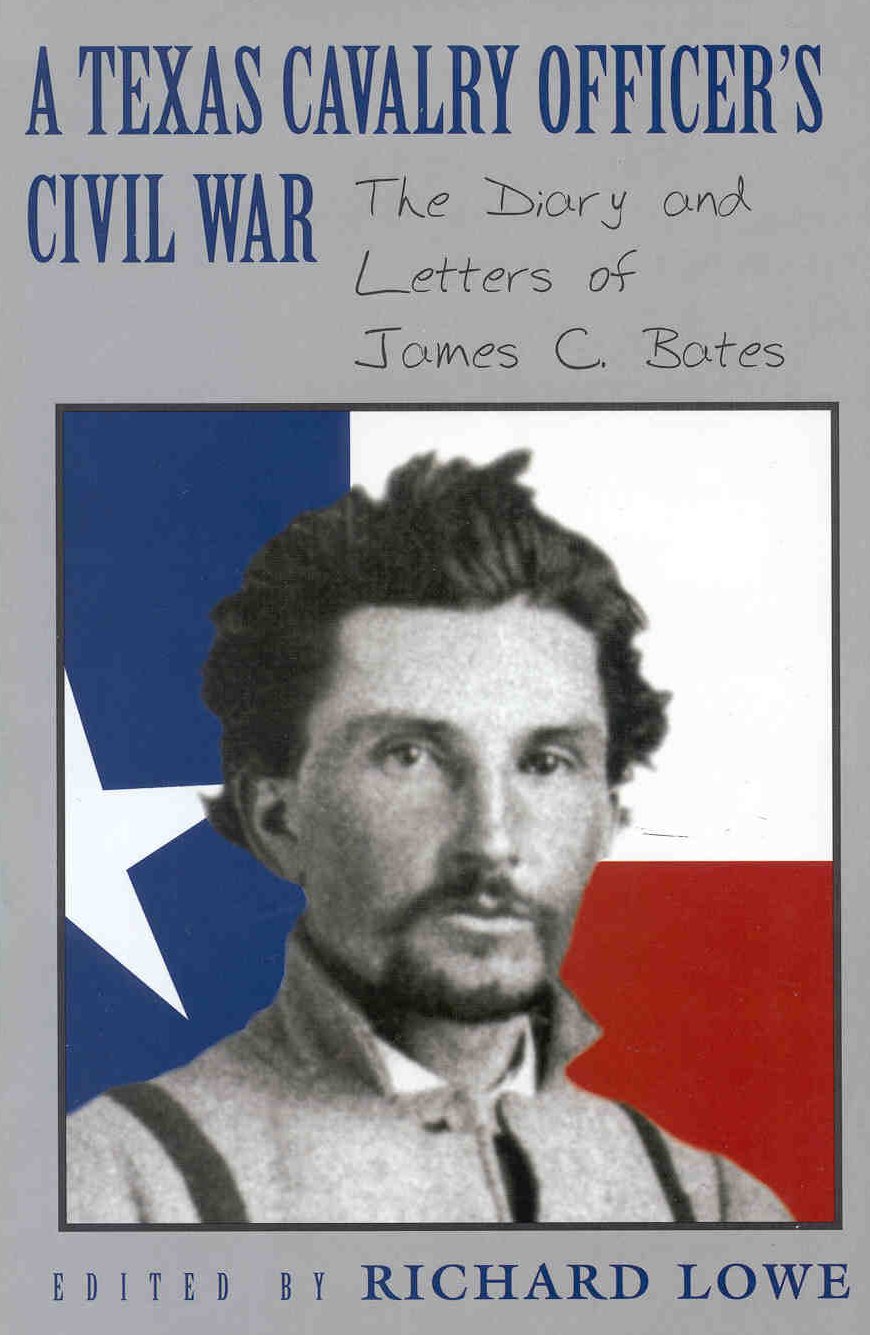

| |||

(Baton Rouge: Louisiana State University Press, 1999).
By Dr. Richard Lowe
A volunteer officer with the 9th Texas Cavalry Regiment from 1861 to 1865, James Campbell Bates saw some of the most important and dramatic clashes in the Civil War's western and trans-Mississippi theaters. During his service, Bates rode thousands of miles, fighting in the Indian Territory; at Elkhorn Tavern in Arkansas; at Corinth, Holly Springs, and Jackson, Mississippi; at Thompson's Station, Tennessee; and at the crossing of the Etowah River during Sherman's Atlanta campaign. College-educated and unusually articulate, he recorded his impressions in a detailed diary and dozens of long letters to his mother, sister, brother-in-law, and future wife, who waited at home in Paris, Texas. Publication of Bates's writings, which remain in the possession of family descendants, treats scholars to a documentary treasure trove and all readers to a fresh, first-person dose of American history.
Bates's letters and diary yield significant supporting evidence of the west's crucial role in the Civil War. They are valuable as well for what their observant, keen-minded author has to say: chilling accounts of combat; a running narrative of life in camp and on campaign; commentary on the mood of the military, army politics, and attitudes toward draft dodgers, the enemy, and blacks; reactions to the latest political and diplomatic news; and more. Editor Richard Lowe provides easy access to Bates's gripping story, identifying the major and minor figures in Bates's world, linking events described in the writings to the overall action of the war, and tracking Bates's life before and after his military service. He includes a complete bibliography and a modern-day surgeon's assessment of the near-fatal facial wound the young soldier sustained.
Bates's account confirms the image of the Texas cavalrymen as a hard-riding bunch -- long on aggression and short on discipline. Often put at the front of charges and the rear of retreats, they grew restless during inactive stretches, and many deserted in later years. Bates, however, stayed to the end despite his debilitating injury.
From his first diary entry to nearly his last letter, he was convinced the Confederacy could not lose the war. The defeats the South met with at Elkhorn Tavern, New Orleans, Memphis, Corinth, Vicksburg, and even Atlanta he saw only as detours and delays on the way to eventual victory.
James C. Bates lived on the 700 block of Clarksville Street. He was a census taker in Paris for the 1860 census, and he lived in Paris from the late 1850s to the late 1860s, and again in the late 1880s and early 1890s. He married the daughter of Paris physician, Alfred S. Johnson, who also lived on Clarksville Street, and Bates was a close friend of E. L. Dohoney, a maverick politician from Lamar County in the late 1880s. Bates is buried in the Evergreen Cemetery in Paris.
Richard Lowe is the author of The Texas Overland Expedition of 1863 and Republicans and Reconstruction in Virginia, 1856-70. He is Regents Professor of History at the University of North Texas in Denton.
Send order to:
Lamar County Genealogical Society
1125 Bonham St.
Paris, TX 75460
One Book $35.00
S&H $3.20
Total $38.20
TX residents $ 2.89 (Must pay state tax)
TX residents Total $41.09
______________________________________________________ Please Print Name
______________________________________________________ Address
______________________________________________________ City, ST, Zip